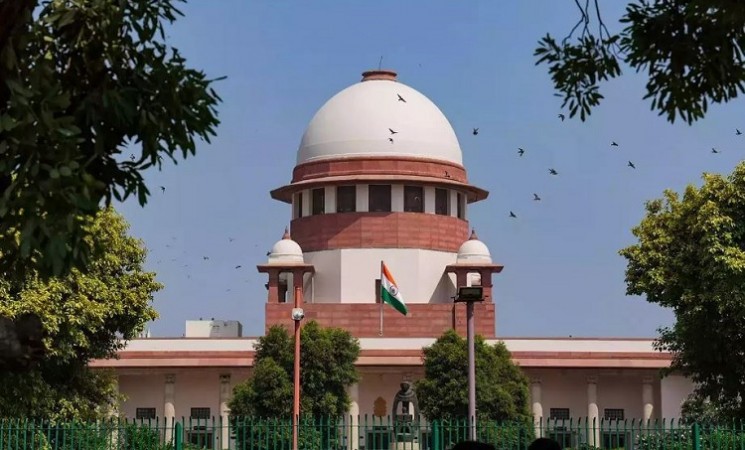
NEW DELHI: In its Second Day Hearing, the Supreme Court of India has recommenced its hearing on 'Article 370' today, August 3. A myriad of petitions are up for discussion, challenging the 2019 dilution of Article 370 by the union government, which ultimately stripped Jammu and Kashmir of its special status.
A day prior, on 2nd August, a panel of five judges initiated the proceedings. Senior advocate Kapil Sibal contended that the abrogation of Article 370 was invalid since the Jammu and Kashmir Constituent Assembly never endorsed it before its dissolution.
The esteemed Chief Justice of India DY Chandrachud, along with Justices SK Kaul, Sanjiv Khanna, BR Gavai, and Surya Kant, are presiding over this matter, lending an air of unpredictability to the proceedings.
Today, on Thursday, the hearing on Article 370 commences once more in the Supreme Court, and Senior advocate Kapil Sibal draws attention to the Constitutional Order of 1954, which superseded the 1950 order.
The Supreme Court is poised to hear various pleas challenging the abrogation of Article 370, which accorded special status to the erstwhile state of Jammu and Kashmir, contributing to the overall diversity of the legal arguments presented.
****
What is Article 370 In Indian Constitution?: Article 370 was a provision in the Indian Constitution that granted special autonomous status to the region of Jammu and Kashmir. It was included in Part XXI of the Constitution, which deals with "Temporary, Transitional, and Special Provisions."
Key features of Article 370 were as follows: Article 370 granted Jammu and Kashmir considerable autonomy in its governance. It allowed the state to have its own constitution and flag, in addition to the Indian Constitution and the national flag.
Limited jurisdiction of the Indian Parliament: Under Article 370, the Indian Parliament had jurisdiction over Jammu and Kashmir only in matters of defense, foreign affairs, finance, and communications. For all other matters, the state's government had exclusive authority.
Dual citizenship: The residents of Jammu and Kashmir were given special privileges concerning property ownership and citizenship rights. Only residents, as defined by the state's laws, could own property in the region.
No application of fundamental rights: Some provisions of the Indian Constitution, particularly those related to fundamental rights, were not automatically applicable to Jammu and Kashmir. The state's government had the power to decide which provisions to apply and which to exclude.
SC to Hear Pleas Challenging Scrapping of Article 370 Today